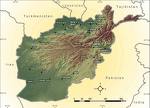US Imposed “Democracy” in Afghanistan

Elections were held for the parliament in Afghanistan on September 18. Few Canadians were aware of this as there had been no coverage by our mass media. For geopolitical reasons, the U.S. government has been deeply involved in Afghanistan since the early 1970s. But Canada’s involvement in the war and economic development has been justified on the grounds that we are helping to build democracy. How has this been going?
There are many reasons why a liberal democratic political system has not been established since the U.S. invasion and overthrow of the Taliban regime in October 2001.
First, it is clear that the majority of the Afghan people wanted the return of the 1964 Constitution, which was established in a very open and democratic manner. But the U.S. government, backed by its allies, said no. Afghanistan had a constitutional parliamentary form of government; the new constitution, imposed on the people by the U.S. government and its allies, established a very strong, centralized presidential system of government.
For example, the president appoints provincial governors and mayors of cities. Would this be acceptable in Canada? In the United States?
Second, the U.S. government imposed Hamid Karzai on the Afghan people. They carefully chose the delegates to the original Bonn meeting in 2001. The five major democratic coalitions asked for representation, but the U.S. government said no. But the delegates chosen actually voted for Abdul Satar Sirat for interim president. He represented those who wanted a return to the constitutional monarchy. The U.S. government said no. The new interim president had to be Karzai, who had been a key agent for the U.S. government in transferring funds to the mujahideen during the civil war against the leftist government and their Soviet allies. No funds would go to Afghanistan unless Karzai was president.
Third, the dominant political parties in Afghanistan today are the current versions of the radical Islamist organizations which were supported by the U.S. and Saudi Arabian governments during the civil war. But there are a good number of progressive democratic parties, alliances and coalitions which are trying to build links across ethnic, religious and regional lines. They strongly oppose the warlords and drug lords who have so much power in the present Afghanistan. The U.S. and Canadian governments have blocked their development and participation in the political system.
Fourth, the Afghan people wanted all the warlords, drug lords and those responsible for human rights abuses over the past 20 years to be excluded from holding office and participating in politics. Instead they are in key positions in the Karzai government and dominate the parliament. They passed a law giving themselves immunity from prosecution for crimes which occurred over this period.
The Afghan government states that around 17 million Afghans were registered to vote in the parliamentary election. There were 2600 candidates standing for the 249 seats in the Wolesi Jirga, the lower house. The electoral system in operation requires all candidates to run on a province wide basis, using the single transferable ballot. Few candidates were known to voters. There are now 108 political parties officially registered, but since the first election, President Hamid Karzai, backed by the U.S. and NATO governments, has refused to allow them to officially run candidates. Only individual names are on the ballot, not political identification. Would such an electoral system be acceptable in Canada?
The democratic political parties petitioned the Karzai government asking for proportional representation and electoral districts based on population, as had been used in the past. This was rejected. They also oppose the present system, where women must vote at separate polling stations, and the number is very limited and non-existent in many areas.
Because of the general disillusionment with this political system, the turnout in the Presidential election in 2009 was only around 35% of eligible voters. Corruption and fraud were widespread. The main opposition candidate, Abdullah Abdullah, refused to participate in the required run off election, declaring that a fair election was impossible with Karzai as President. Early reports are that less than 20% of eligible voters cast a ballot in the parliamentary election. There are widespread reports of fraud.
Canadians have contributed a great deal in many ways to the U.S. project in Afghanistan. Have the results been worth the sacrifice?
John W. Warnock is author of Creating a Failed State: The US and Canada in Afghanistan. Halifax: Fernwood Publishing, 2008.

